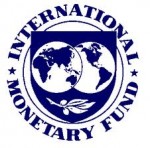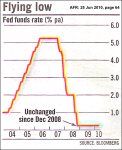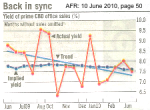 Last week, to the IMF gave the Australian economy a positive report card — with a projected growth of 1.8% for 2011, and 3.3% for the ensuing 12 months.
Last week, to the IMF gave the Australian economy a positive report card — with a projected growth of 1.8% for 2011, and 3.3% for the ensuing 12 months.
Clearly there is international concern about the state of affairs within Europe and the US.
However, that belies the positive impact being provided by the rest of the world.
Although China’s growth is slowing, it still remains at a healthy 9% per annum; and India is not too far behind at 7.5% per annum.
When you add to that Latin America at 4%, and parts of Africa at close to 6% … you then start to see the northern Atlantic problems in some perspective. [Read more…]
 Exactly why have industrial companies around the world been slow to recover? And why did everything look so promising … and then suddenly, seem to grind to a halt?
Exactly why have industrial companies around the world been slow to recover? And why did everything look so promising … and then suddenly, seem to grind to a halt?













